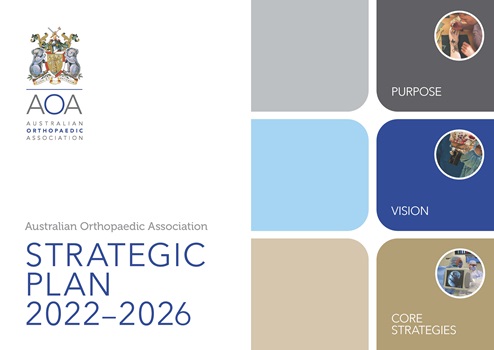AOA pursues its purpose of restoring and advancing the wonder of movement, through four core strategies:
- Training and education
- Culture, diversity, equity and inclusion
- Clinical practice and research
- Advocacy and engagement

Download the AOA Strategic Plan 2022 – 2026
The
AOA Strategic Plan 2022–2026 was developed over 18 months through consultation and review with members, all AOA board committees, state branches, subspecialty societies, Orthopaedic Women's Link (OWL) and Australian Orthopaedic Registrars' Association (AORA), with the Board approving the plan at the July 2021 Board meeting.